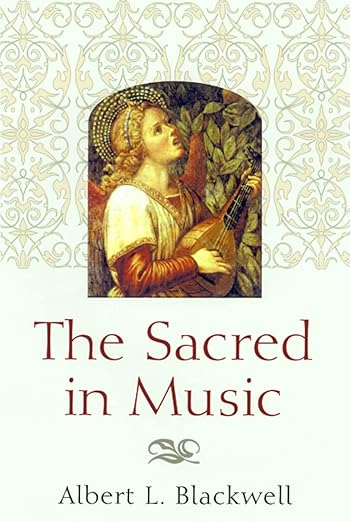
Music, regardless of context, is a powerful medium of connection and transcendence. In church, it accompanies the believer’s journey toward God, while in secular settings, the experience of impactful music carries its own kind of spiritual authority. Similarly, Albert Blackwell unites the secular and religious profundities of music by framing music and religion as “complementary resources” for interpreting human life. By approaching music through both Pythagorean and Incarnational lenses, his work presents a distinctly Christian aesthetic of music.
Blackwell begins by delineating these two lenses: the Pythagorean, which emphasizes music as silent order, harmony, and cosmic ratio; and the Incarnational, which regards music as an embodiment of deeper meaning and emotion. Drawing parallels between musical and religious universals, he suggests that the inner architecture of music points toward the divine. He then describes the Incarnational tradition as expressing transcendence through emotion and meaning. Throughout, Blackwell explores the communal bond that music fosters through beauty, holding both spiritual and secular promise. Ultimately, the mystical experience of listening to music transcends not only language but even the boundaries of this world, leading toward an inner sense of final bliss. In this way, The Sacred in Music reveals the persistence of Christian asceticism within both the mathematical and spiritual dimensions of musical experience.
Albert Blackwell is a Reuben Pitts Professor Emeritus of Religion at Furman University. In addition to the current work, he has authored numerous works, including the following: “Every Valley” (2014), and “Frederich Schleiermacher and the Founding of the University of Berlin.”
For more information on this publication, click here:
For more of “On the Lived Theology Reading List,” click here. To engage in the conversation on Facebook and Twitter, @LivedTheology, please use #LivedTheologyReads. To sign up for the Lived Theology newsletter, click here.
